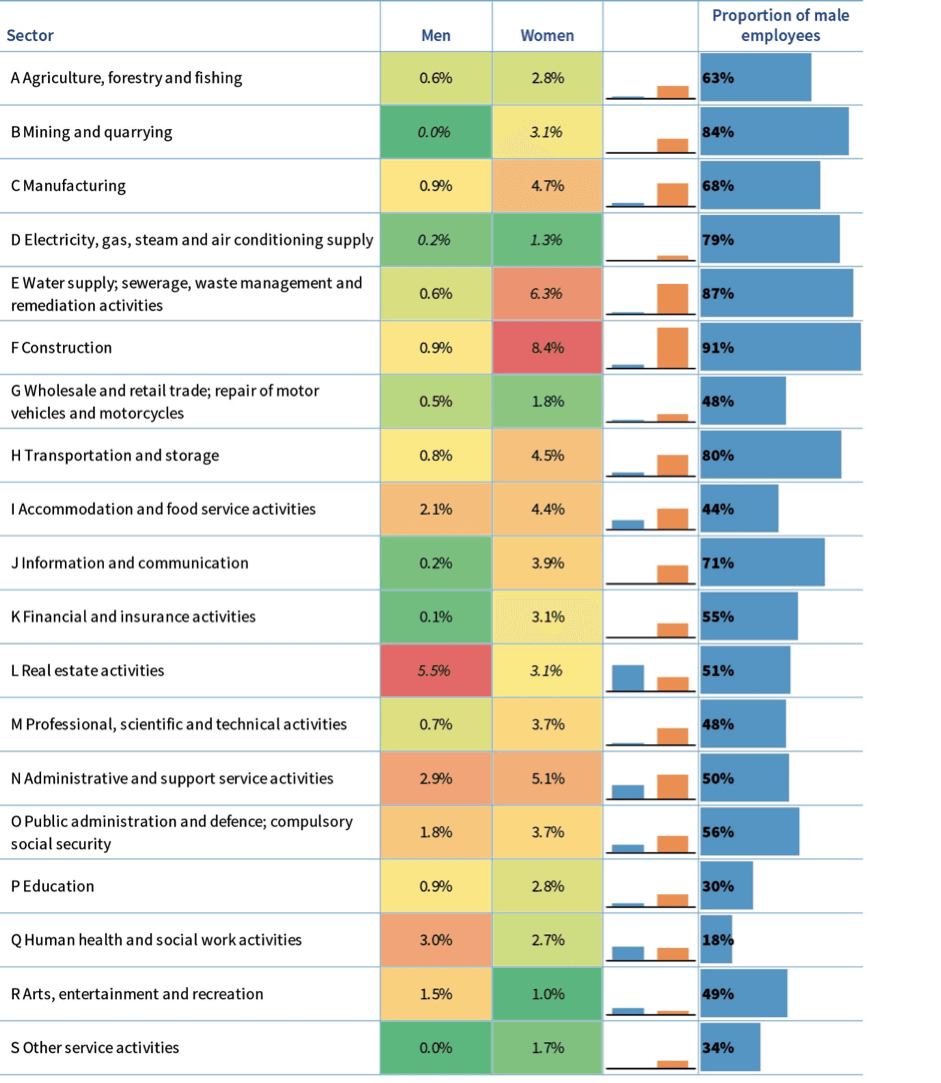The Rise of Office Apartheid, The Feminist Workplace and The War Of The Sexes
Wednesday 23 May, 2018 Written by Simon Collyer/Karel Fric and Camilla Galli da Bino
Office Apartheid is the term given by the ABC to offices and workplaces where men are being discriminated against by women, whom in some cases have had bad personal relationships with men and who are creating all women environments.
Could we see - not simply a 'battle', as it was in the 60’s, but a war of the sexes over scare resources such as jobs? Some males might argue they risk being squeezed out of jobs and offices across the land. Young men are being displaced by women and it can create the feeling they have no role left in society and no purpose. This can fuel the education drop-out rate and the rise of those who reject societies values altogether. Many rough sleepers are certainly men. Men are used to being classed as potential rapists by the feminist movement and these issues are far more real than headline grabbing rhetoric from the bra burners.
The family unit has been breaking down and now only the rich tend to get married as 47% of marriages end in divorce. 30% of young children have no father in the traditional sense. At the ABC we are already tackling one such alleged case and we are aware that there may be other instances of male individuals fighting the sisterhood to retain or get a job.
Men and women are equal, but for many women as 30 approaches and the urge to have children increases, as does the urge to be there for them at the school gate at 4pm. It is an overpowering maternal instinct, far stronger than the drive to succeed at Widget Limited.
Women it seems are far readier to accept part-time jobs and work for £8 an hour to nurture their children.
The decline in real wages could have far less to do with immigration than this army of female workers prepared to work for fewer wages and no benefits such as pension rights. This phenomenon is starting to be understood and recognized. This article below is an interesting read.
+++
In this blog piece, originally published in Social Europe, Karel Fric and Camilla Galli da Bino look at the issue of discrimination against men in the workplace in Europe, and the current lack of research in this area.
Over time, our society has become more aware of discrimination in the workplace. When we speak about the victims of workplace discrimination, we mainly think of women, racial, sexual and religious minorities, younger and older workers … but what about men? In our report Discrimination against men at work: Experiences in five countries we investigate whether discrimination in the workplace affects men too.
A look at the answers to the 2015 European Working Conditions Survey reveals that 1.1% of men felt discriminated against at work because of their sex. This might seem small, but it is actually higher than one might expect, considering that the proportion of women reporting discrimination was 3.2%. So how is it possible that discrimination against men because of their sex is so rarely discussed? And what forms does it take?
In our research, we took a closer look at five EU countries – Bulgaria, Cyprus, Denmark, France and the UK. We found numerous instances of discrimination against men that were reported in the media, led to legal cases or were the subject of public debates. It struck us that the cases were concentrated in specific sectors and occupations. In the health sector, some male carers and nurses were singled out for special treatment. This is often related to patients’ unease with being taken care of by men. In the education sector, the reputation of male teachers – especially in kindergartens – was undermined by paedophilia scandals. This resulted in special rules for men, such as assigning them specific tasks and excluding them from others. In more extreme cases, it led to dismissal. Male job-seekers raised concerns that they were disadvantaged in the recruitment process for jobs such as waiter, receptionist or administrative worker. Sometimes, the preference for women was even explicitly mentioned in job advertisements. An experiment in the UK showed that men were systematically less likely to be invited for interviews than women when they applied for the ‘female’ job of secretary.
‘Caring is not for men’
Other cases of discrimination concerned unequal treatment with regards to working time and parenting. Some men did not receive the same entitlements as their female colleagues. Others were bullied or not promoted when they wanted to take on more care responsibilities for their children, with one employer deeming this ‘inappropriate’ male conduct. Cultural perceptions of men themselves constrict them to a stereotypical role vis-à-vis work–life balance issues. The poor uptake of paternity leave, especially in more conservative societies, is a typical example, with men fearful of stepping out of their role as breadwinners to fully share childcare responsibilities. Employers may consider men less committed to their job if they ask for time off to be with their families, while the same requests by women are treated as the norm.
Discrimination against men can take on more subtle forms, such as stricter dress codes for men in the workplace. In Sweden, this resulted in a collective action by train drivers and conductors who circumvented a ban on wearing shorts in the hot weather by wearing skirts.
Workplaces all over Europe have introduced measures aimed at preventing discrimination against women over their working lives, from recruitment to career end. Campaigns in schools call for girls to study traditionally male subjects such as engineering. But haven’t we forgotten about men? Many gender-equality measures pay little or no attention specifically to men. This is true even in traditionally female-dominated sectors and activities, such as nursing and caring, where we find evidence of discrimination against men, as the figure below illustrates.
Figure: Extent of perceived sex discrimination at work, by sector (%)

Leave a comment
Make sure you enter all the required information, indicated by an asterisk (*). HTML code is not allowed.
Join
FREE
Here










